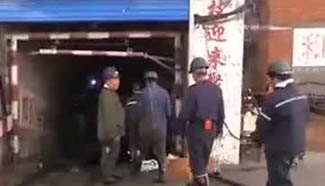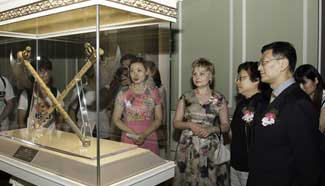One of the highlights of China’s military diplomacy over the past year was the People’s Liberation Army’s (PLA) increasing overseas engagement, including participating in the joint international search for missing Malaysia Airlines Flight MH370, helping to fight the Ebola virus in West Africa, dispatching an infantry battalion on a UN peacekeeping mission, and providing emergency drinking water to the Maldives. These unprecedented efforts represent the PLA’s solemn commitment to maintaining global peace. “As a rising power, China is obligated to provide public security services to relevant countries and regions so as to ensure common security. This is in line with the interests of China, the international community and the relevant countries,” Major General Qian Lihua, a national political adviser and former director of the Foreign Affairs Office of China’s Ministry of National Defense, said in an interview with the xinhuanet.com.
Undistracted by noise
However, the Chinese military’s intensified overseas engagement has run into some suspicion, with some distorting its intentions as “colonizing Africa” or “expanding its overseas military presence”. Qian regarded these misinterpretations as one-sided judgments based on a certain country’s own interests. The truth was that China was providing public security services in line with the requirements of the United Nations Security Council and the demands of relevant countries. These moves were good for all relevant parties, said Qian.
“Doubts and different opinions arise when people look at things from different perspectives. But we will not be distracted as we know the starting point of our efforts accords with the interests of relevant countries and China,” he said.
In fact, the doubts about China’s military had stemmed not only from the PLA’s greater overseas engagement, but also an unstable peripheral environment. With the United States speeding up its strategic rebalance in the Asia-Pacific region, and situations in the South China Sea getting increasingly intricate, some people even predicted that the region would become a new powder keg. Qian Lihua said Asia-Pacific countries needed to establish a new Asian security mechanism to enhance mutual trust and prevent mistakes.
“Overall, the situations in the Asia-Pacific region, especially those in Southeast Asia, are controllable. The security concerns there will not evolve into a so-called new ‘powder keg’. So long as the relevant parties make concerted efforts to establish a security mechanism appropriate for Asia, to decide Asia’s security agenda and increase mutual trust and avoid unnecessary speculation through consultations, it is possible to reduce risks and prevent accidents,” he said.










